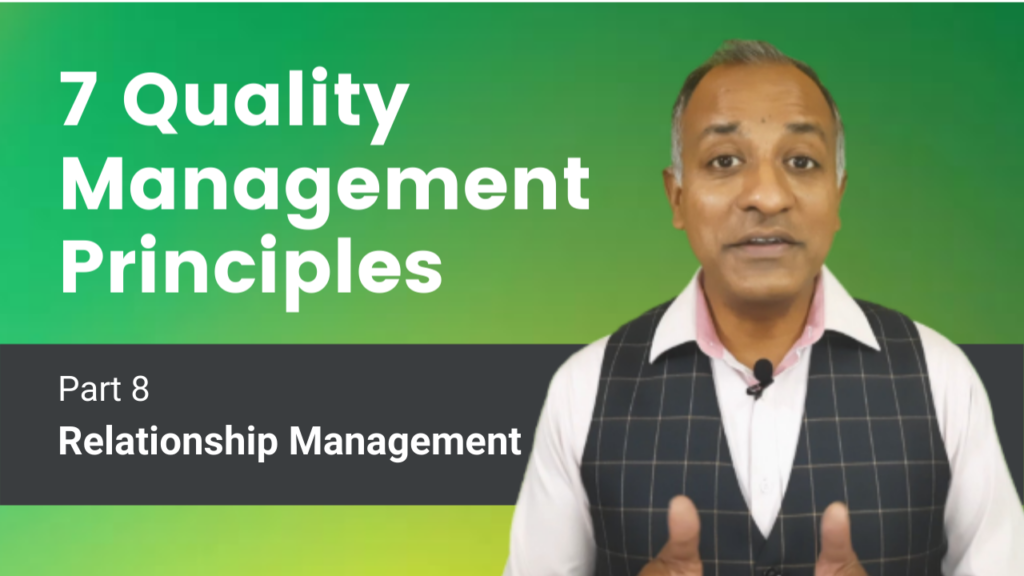What is ‘Relationship Management’: Quality Management Principle 7


What you do not do to yourself, do not do to others: Confucius
Introduction
When mother earth does not differentiate between people of different nationalities, religion or colour? When a parent does not need to tell their child, how much they love them? When the internet signal does not differentiate between rich and poor? Then, Why, employees have to demonstrate their loyalty to their employer! Why the supplier has to communicate their commitment towards their customer in different ways! Why, in present times, a lover has to regularly demonstrate the love towards their partner to sustain the relationship!
The meaning of the relationship is changing with time and that is why its management has become imperative.
Objective
Relationship management is all about understanding who your relevant interested parties are and nurturing the relationships you have with them. It is about identifying their needs & expectations and how you meet or go beyond their expectations. When done consistently, it results in sustained development.
Definitions: ISO 9000: 2015
Management (Cl 3.3.3): Coordinated activities to direct and control an organization.
Detailed Information
The Quality Management Principles are not specific to any one industry and can be applied to organizations of any size and type.
As per ISO 9000: 2015, clause 2.3, following are the 7 principles of Quality Management
- Customer Focus
- Leadership
- Engagement of People
- Process Approach
- Improvement
- Evidence-based decision making
- Relationship Management

For the sustained success of the organization, the concept of ‘Relationship Management’ should be understood and effectively implemented. A structured approach should be coherently followed for consistent results across all the processes.
What is ‘Relationship Management’?
- Empathy
- Transparency
- Trust
With Whom ‘Relationship Management’ is needed?
- Employees
- Customer
- Suppliers
- Competitors
- Local community
- Neighbouring industries
- Bankers
- Trade unions
- Shareholders
Why ‘Relationship Management’ is needed?
- For sustained success
- For customer satisfaction
- For keeping a sound relationship with labour union
- For creating value for all the relevant interested parties
How ‘Relationship Management’ can be effectively implemented?
- Identify relevant interested parties like customer, supplier, investors, employees etc.
- Understand their needs and expectations
- Share organizations’ expectations to the interested parties
- Understand the competence and expertise of the interested parties
- Share the resources and knowledge where needed
- Establish long term relationship and value creation
- Measure their performance and provide them feedback with possible suggestions
- Encourage improvement in their processes
- Acknowledge the achievements
What benefits the organization can achieve?
- Enhance the effectiveness and efficiency of the organization and relevant interested parties
- Effectively respond to the constraints and opportunities related to interested parties
- By managing risks related to organization and interested parties, the value can be created
- Effective supply chain management
Present Challenges:
- How often organizations are interested in creating ‘win-win’ situation?
- How often organizations are interested in understanding the needs and expectations of their interested parties?
- How often organizations interlink their success with the sound business health of their interested parties?
References:
ISO 9000: 2015
ISO 9001: 2015
IATF 16949: 2016
This is the 89th article of this Quality Management series. Every weekend, you will find useful information that will make your Management System journey Productive. Please share it with your colleagues too.
Your genuine feedback and response are extremely valuable. Please suggest topics for the coming weeks.

Very interesting and knowledgeable presentation Sir
Thanks Raj for your regular feedback.